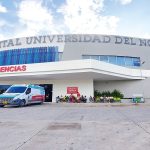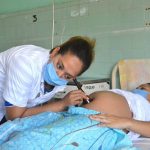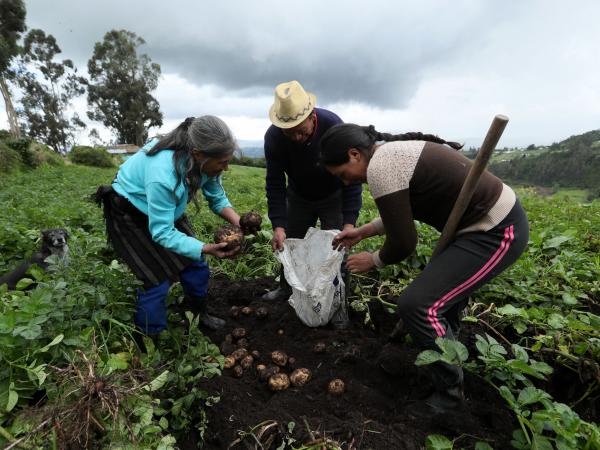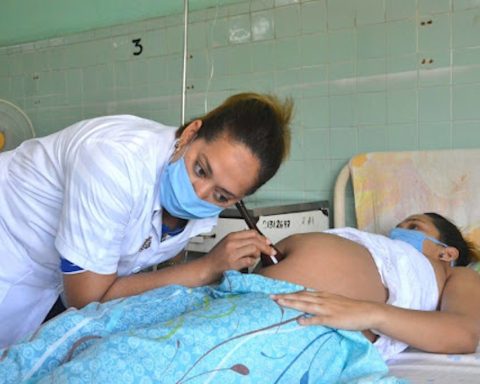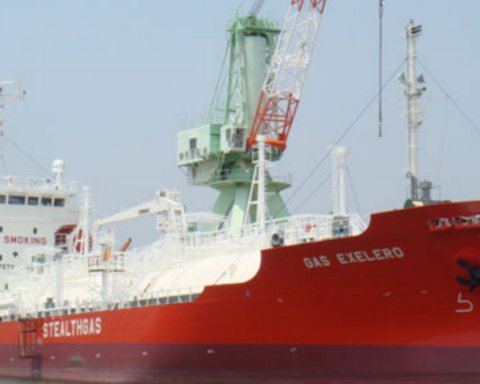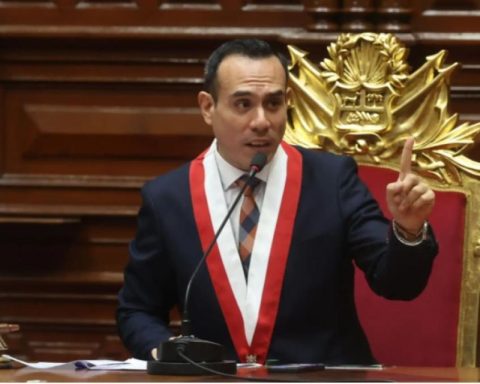
The regional governors of Arica and Parinacota, Jorge Díaz, and Antofagasta, Ricardo Díaz, analyzed together with The counter the migratory situation that is being experienced in their respective regions, the emergency constitutional state of exception decree announced by the Government in four provinces in the north of the country, and the treatment and the delay in the reaction that they accuse of the central authority. Both agreed that if it is not accompanied by complementary and substantive measures, be it clarity in budget execution, expenses and a roadmap, the sole measure of the decree will hardly solve a major conflict. In this sense, it was emphasized that this is an exceptional measure, as the title suggests.
-How do you evaluate the fact that the state of exception has been decreed in response to the migratory situation that is being experienced in the north of the country?
DR: It is a strange measure, because the murder occurs in the province of Antofagasta and not on the border. This exceptional measure seems to me to have more to do with trying to find some blow of effect, of authority, regarding the management of migration.
I believe that the correct thing here is to try to increase the endowment, clarify the budgets that are assigned for the migration law, and from there, generate a whole process of articulation where there is a presence of carabineros on the highways. In such a way that the presence of migrants on the roads is avoided, which was what caused this crime.
I believe that the measures, if they are not accompanied by a budget, execution deadlines and those responsible, in reality, are many flying lights.
JD: Not every measure that is applied is sufficient, we could not think that with the sole dictation of this constitutional state of exception, it will solve the serious migration crisis.
There has been an apathy on the part of the central government to see how this situation was dealt with. Let us remember that together with the regional governors of Tarapacá and Antofagasta in October of last year we asked the deputies of our districts to initiate an interpellation with the Minister of the Interior.
Five months have passed since then, and the required measures have not been taken. This is a measure that added to others could have a good effect. We would have to review first what the consequences are. The first reconduction of 19 people has already taken place in the region.
-With what eyes do they see an eventual extension of the state of emergency decree to more provinces of their regions?
DR: When many of us talk about the state of emergency, we talk about it in a different context, when the migration crisis was not there, when we did not have the very serious increase in these crimes.
The concept of exception should be something that is applied once and that allows for a blow of effect, but that later we should go back to the normal channels with greater police presence, greater control, greater protection. The state of exception has to be just that, an exception, because if the state of exception becomes normal, we are in serious trouble, the rule of law is what has to be accentuated.
JD: “What has been specified, and what we have been able to see in terms of information, is that it is rather a border constitutional state of exception, it is different from all the other states of exception that we have known, because it implies protecting the border .
It is something that decree 265 itself, which has already been issued for almost two years. However, it had not materialized, and in my opinion, it is the way in which this provision for the Armed Forces to accompany police work in border protection is materializing.
Making a similarity, the border that unites us with Peru and Bolivia is approximately equivalent to the distance between Santiago and Temuco, it is a huge piece of land”.
-What should be the basic solution to accompany this exceptional measure?
DR: That budgets be ensured, for example of greater investment in technology, in the regions, which is something that the governors of the entire northern macrozone are demanding. What is the investment that there is going to be from the central level, in greater technology, greater security control, even in more personnel at the border. It is not going to be that they put officials in office hours, as happened in Colchane.
This has to be with officials 24/7, because all the time there is the flow of migrants.
JD: We cannot say that with the declaration of the decree the problem ends, but from the regional and territorial experience, the key to migratory entry through irregular steps begins to close a little. And that, hand in hand with other measures, would be a good start.
It would be necessary to analyze in merit, how this type of measure is being useful. If I believe it is necessary to quantify reality, last year six thousand immigrants who entered through irregular border crossings self-reported. Without counting the black figures, we could be talking about 10,000, 5 5 percent of the entire population of the region.
-During your meeting with the team of advisers to the future Minister of the Interior, Iskia Siches, was the state of emergency an issue?
DR: No, because what we have been discussing with them is how to regularize the migration process. Even with them we have been talking about a registration system for migrants who are already in our regions. What we have been talking about are measures that aim rather at trying to generate greater security for the entire population.
What we are seeing now simply with this government is the specific issue of highways, so that is the big difference. We have seen a government that does not like to talk with the elected representatives, versus a government that is seized and has already created a working group with the three governors”.
JD: “(With the current authorities) it could have been a much more consensual process, with much more attention to the territories, that is why I value the team and work of the future Minister of the Interior, who has already met with us. It is a change of style and of governance, it is very important, it is not enough to dictate measures that point to different problems, but of the way in which it is carried out.
-How would this registration take place, with respect to those who entered through an irregular passage?
RD: “In the case of the migrants who are already there, they have to be regularized, why, because that means that they could perhaps have a visa that allows them to work, so that they begin to impose, and so that deep down they begin to assume their own expenses. As long as they are irregular, they are going to be state spending, because public health has to assume them, public education has to assume them.
But if you manage to start a regulation process, you are going to get them to begin to impose themselves and manage their own health.
That is the difference, first you have to remove the ideological approach that some sectors have, of rejecting all migration per se. I, in this region, have 40 medical specialists, who are migrants. If they start with this dynamic that all the migrants leave, I will be left without oncologists in my region.
That is what must be changed, we must not see migration as if they are all bad or criminals, because if not, we are going to have serious problems there, we must see the possibilities that exist and how this thing is regulated, how it is identified well to those who have a criminal record, to those who are committing crimes. We have to be clear about that, here there are migrants who came to commit crimes. We have to be able to distinguish those who are contributing from those who are doing harm.







